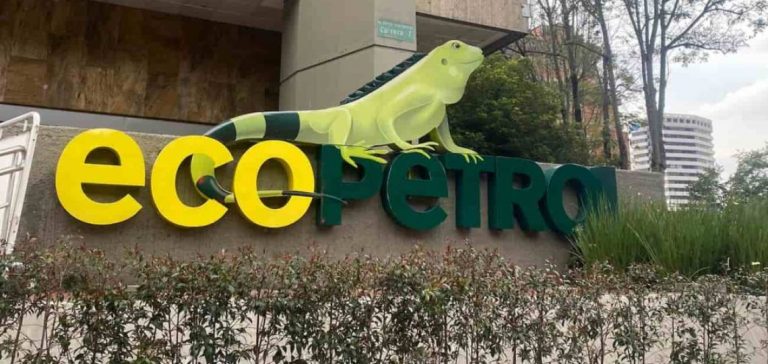Ecopetrol S.A. announced its intention to proceed with an early repayment of USD 500 million on a USD 1 billion loan contracted in 2023 with a consortium of international banks. This repayment, part of a proactive debt management strategy, allows the company to reduce its financial burdens while optimizing its capital structure. The loan, initially set to mature in 2030, was essential in supporting Ecopetrol’s growth and strategic infrastructure investments.
Origin of the loan and Ecopetrol’s financial strategy
In 2023, Ecopetrol contracted this USD 1 billion loan from international banks, including The Bank of Nova Scotia and Sumitomo Mitsui Banking Corporation. This financing was part of a broader refinancing strategy of previous debts and supporting key infrastructure projects. Among these projects, the acquisition of 51.4% of Interconexión Eléctrica S.A. (ISA), a key player in energy transmission in Latin America, proved to be a strategic investment. ISA operates in several Latin American countries, including Colombia, Brazil, Chile, and Peru, managing critical electricity transmission infrastructure.
Reduction of financial burdens and long-term impact
The early repayment of USD 500 million will allow Ecopetrol to reduce its interest expenses and increase its financial flexibility. This repayment is funded by two distinct sources: a USD 250 million loan signed with Sumitomo Mitsui Banking Corporation in August 2024, and USD 250 million from the company’s available cash reserves. This proactive management allows Ecopetrol to limit its exposure to long-term interest rate fluctuations while optimizing its balance sheet. This strategic move also demonstrates the strength of Ecopetrol’s cash position, which, despite global uncertainty, manages to maintain notable financial flexibility.
Implications for the energy transition
Alongside reducing its financial burdens, Ecopetrol continues its commitment to the energy transition, largely supported by its acquisition of ISA. This acquisition strengthens its presence in the high-voltage energy transmission sector, a crucial segment for integrating renewable energy into the region’s power grids. Ongoing projects include the construction of new high-voltage lines in Brazil and Chile, facilitating access to clean energy sources and supporting decarbonization goals throughout Latin America.
Ecopetrol, through ISA, plays an essential role in optimizing existing transmission networks, integrating renewable sources such as wind and solar, while enhancing the resilience of the region’s energy infrastructure. This strategic positioning makes Ecopetrol a key player not only in hydrocarbons but also in the electrical infrastructure sector, which is vital for the energy future of the continent.
Conclusion on Ecopetrol’s strategy
By proceeding with this early repayment, Ecopetrol demonstrates a rigorous financial management approach, reducing its debt exposure while continuing strategic investments in the energy sector. Its position in electricity transmission, coupled with proactive debt management, makes it a resilient player in the face of the global energy transition challenges. The reduction of interest expenses and improvement in financial ratios also reinforce investor confidence in Ecopetrol’s ability to navigate a volatile global market.






















